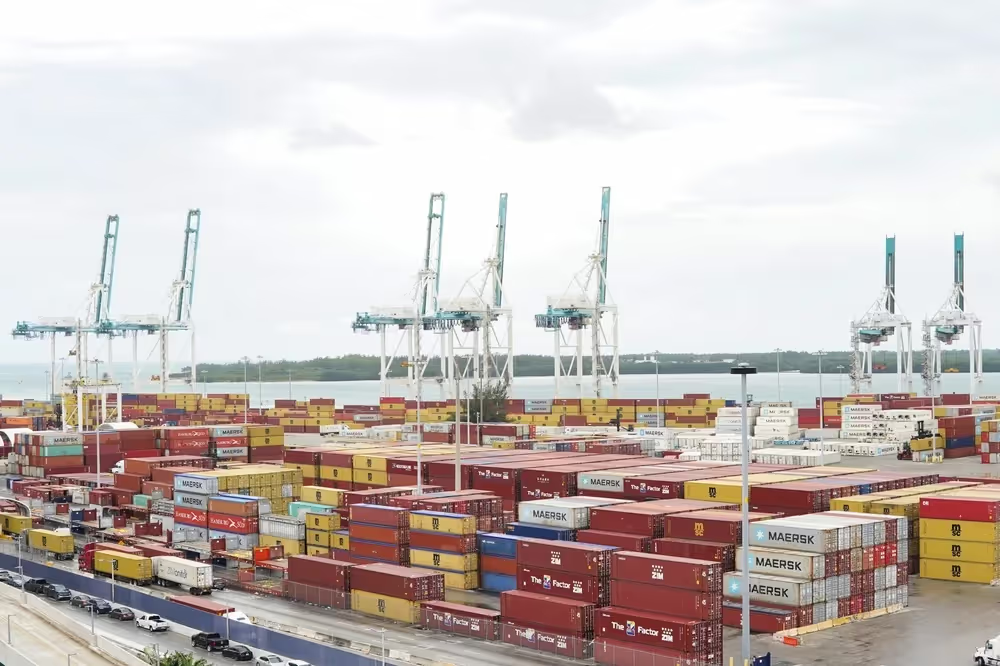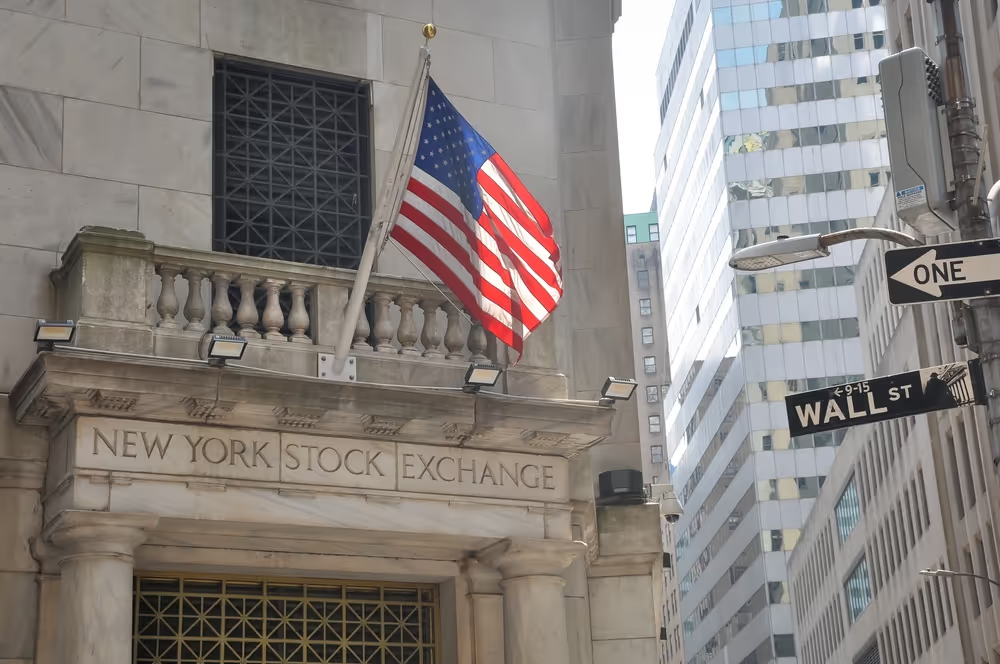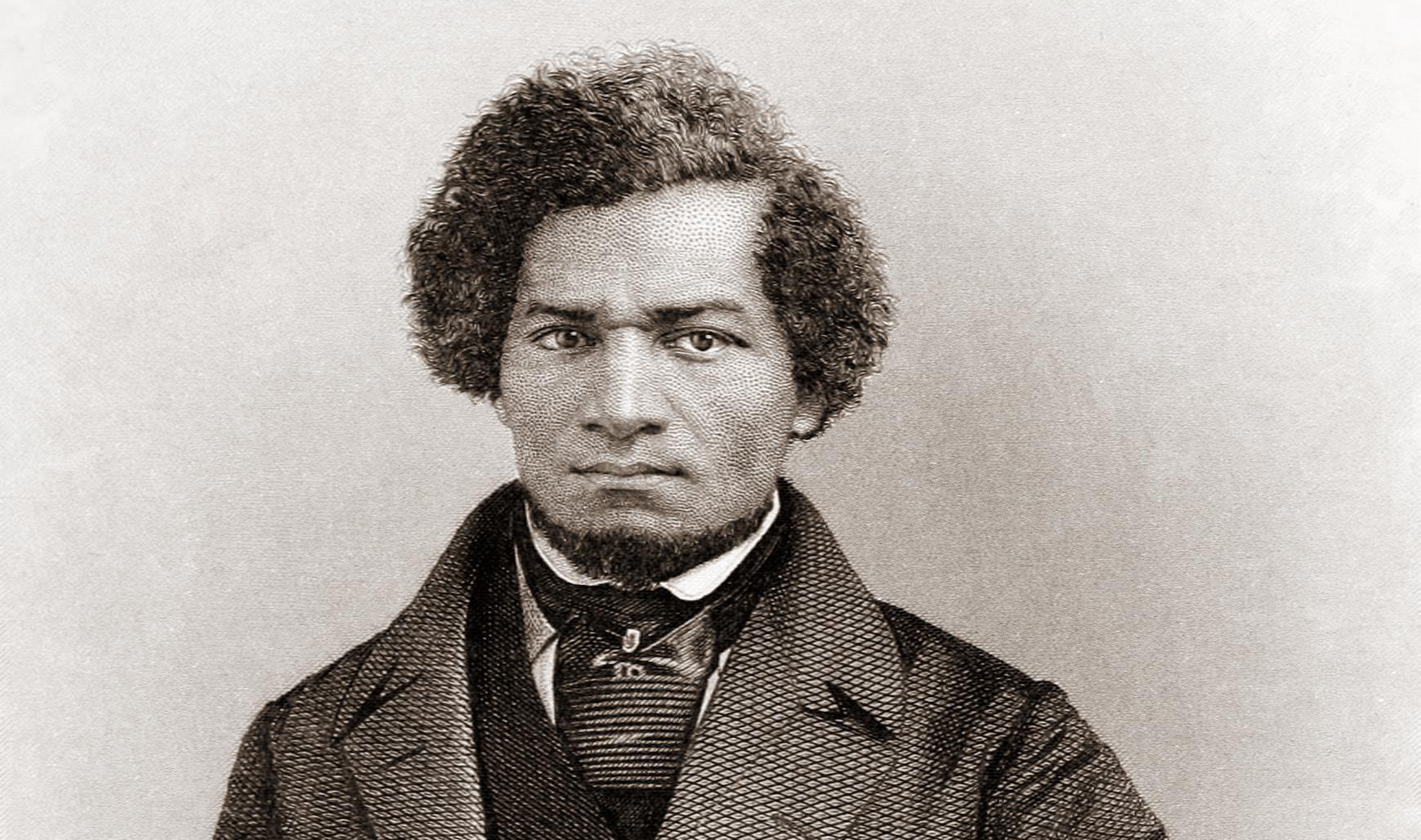
Tariffs, Trade Wars, and the Coming Storm
Victory has been declared by protectionists in the pursuit of their tariff war. But the long term will likely prove them wrong.
Editor's Note: This contribution is part of Civitas Outlook's Tariff Symposium.
Protectionists are declaring victory in Donald Trump’s trade war. The economy hasn’t sunk into recession or fueled runaway inflation as some critics predicted after the president announced a series of astonishingly high tariffs on “Liberation Day.” Unemployment remains low, consumer spending is solid, and inflation is tamer than feared. The stock market is up and, thanks to trade deals, investments into the US will pour in, we are told. That’s on top of the hundreds of billions of dollars in revenue, all paid for by foreigners, according to the president and his allies.
As Trump and his protectionist allies like to remind us daily, “The experts were wrong”. Were they, though? It is true that after quickly pausing the Liberation Day tariffs, tariffs were reinstated on August 1st. The stock market seems relatively calm, and few countries seem interested in retaliating against them. But this calm is deceptive. Many of the costs have been delayed, not avoided. Indeed, the longer the tariffs remain in effect, the greater will be the damage — and today’s triumphalists might come to regret their early victory lap.
So Why the Sky Hasn’t Fallen Yet
Let’s correct the narrative. When protectionists claim that the experts were wrong, they suggest that Liberation Day tariffs went into effect without any economic fallout. That is not what happened. Liberation Day triggered a steep stock market drop and a large sell-off of U.S. Treasuries by investors needing to cover losses elsewhere in their portfolios. In response, President Trump signed an executive order “paus[ing] the imposition of the higher country-specific reciprocal tariffs on all countries except China, while leaving the broad 10% reciprocal tariff rate in effect.” The president reversed course after several advisers, having maneuvered MAGA protectionist Peter Navarro physically out of the Oval Office, persuaded Mr. Trump to act. This pause stopped the market panic.
It’s worth noting that the Treasury sell-off was the opposite of what CEA’s Stephen Miran predicted. He, along with a few other Trump administration officials (including some Fed hopefuls), argued that the announcement would weaken the dollar and spark a rush into Treasuries, pushing interest rates down, which would, in turn, lower interest payments on the debt. The dollar is indeed weaker, but the rest did not happen.
Now, for our biggest trade partners that have reached deals with the administration, the tariffs that were implemented on August 1st are often half the levels announced on April 2. China now faces a 30 percent tariff as opposed to the 104 percent one announced earlier. The UK negotiated a 10 percent tariff as opposed to the 25 percent it faced prior to the agreement. On July 31, a new order reset partner-specific rates for countries that are minor trading partners and clarified that countries not listed would remain at the general 10% reciprocal tariff. On August 11, the White House separately extended a China-specific suspension to November 10.
The tariffs now also include broad exemptions. For instance, the tariffs won’t apply to 30% of EU exports, and the EU is still working on further exemptions for specific categories like wine and spirits. This is quite different than the broad, no-exemption, high-rate tariffs of Liberation Day.
In addition, businesses, too, have delayed the reckoning. Many stockpiled inventories and absorbed costs, betting the tariffs would be temporary. That bet is now looking like a loser. As inventories run down and firms accept tariffs as the new normal, higher costs will hit consumers. While companies temporarily ate the costs early on, eventually they will have to pass along more of these costs.
Now, it’s true that we haven’t seen the kind of retaliation from other countries that we saw during Trump’s first term. However, this is likely the sign that countries are hoping that by not retaliating, they will get better deals than if they do. The question is whether that would last. For one thing, retaliation could intensify if the courts strike down the tariffs.
It is also worth noting that Trump signed into law business-friendly tax provisions allowing companies to expense their capital and R&D costs permanently fully. These valuable policies help offset some of the anticipated negative effects of the tariffs.
Early Consequences Hidden in Plain Sight
And these tariffs inflict sector-specific harms. Consider that tariffs were sold as a lifeline for U.S. manufacturing and its jobs. Even with Trump raising tariffs to heights not seen in nearly a century, data show that the manufacturing sector shed a net 14,000 jobs in May and June. Overall, manufacturing employment has barely budged since he took office in January.
Also, the U.S. manufacturing industry contracted in July for the fifth straight month, with all six of the largest industries in decline and nearly a third of sector GDP in deep contraction. Survey respondents cited tariffs as a major source of uncertainty, higher costs, disrupted sourcing, and delayed investment. This is evidence that Trump’s trade policies are weighing on production rather than helping it.
In addition, while the Trump administration brags about how prices have barely moved since the tariff announcements, the same can’t be said about companies’ profits, even companies the administration claims to protect. The experience of the U.S. auto industry illustrates this point. General Motors reported a 35 percent profit drop in one quarter, including $1.1 billion in tariff-related costs. Ford paid $800 million in one quarter and expects a $3 billion annual hit. These are American companies that are penalized because their domestic plants still rely on imported steel, aluminum, and components, which face dramatically high tariffs. So far, automakers have tried to absorb the extra costs rather than raise prices, at least while waiting to see if tariffs will come back down because of trade deals, but this wait cannot last much longer. Analysts expect vehicle prices to climb 4–8 percent as firms pass more costs on to consumers. Who Pays? Americans
The administration touts tariff revenue as a win for the Treasury. Based on the average of estimates from the White House, the Tax Foundation, the Penn Wharton Tariff Simulator, and the Yale Budget Lab, Trump’s tariffs will annually raise roughly $271.6 billion. But tariffs are not foreign tribute; they are taxes paid by Americans. Drawing on more than a dozen academic and government studies, Scott Lincicome, Clark Packard, and Alfredo Carrillo Obregon show that U.S. consumers and businesses shouldered the cost of Trump’s first-term tariffs on steel, aluminum, solar panels, washing machines, and most Chinese imports.
Research by economists Mary Amiti, Stephen Redding, and David Weinstein found that these tariffs raised household costs by roughly $830 a year on average, along with broader economic harms, including higher prices, reduced consumption, lower investment, and slower export growth. Nearly 1,500 public comments submitted to the U.S. Trade Representative from affected American firms documented these real-world impacts.
In the Long-term: A Pyrrhic Victory
It is hard to predict what the long-term consequences of the tariffs will be. For all its faults, there are a few things the administration is getting right. The deregulation of both energy and AI, for instance, might spur growth enough to mask most of the damage from tariffs. But even high-tech and services depend on open trade. My biggest worry, however, might be the damage this wave of protectionism, and the particular Trump brand of protectionism, will inflict on norms and institutions in the long term. The pattern emerging from Trump’s recent trade and industrial-policy decisions should alarm anyone who cares about the long-term health of the U.S. economy and the integrity of its governance. Instead of a predictable, rules-based policy, we now have an increasingly transactional system in which market access, tariff exemptions, and even the right to operate are contingent on presidential favor. The line between public authority and private enterprises is blurring, inviting cronyism on a grand scale and rewarding political connections at the expense of economic merit. Washington is increasingly dictating corporate strategy, including where factories are built and how companies source inputs, often in exchange for political concessions or cash.
George Gibbs Chair in Political Economy and Senior Research Fellow at the Mercatus Center at George Mason University and a nationally syndicated columnist.

The Start-Up Paradox: The Coming Red Shift in Innovation
Despite London's success, the future of innovation is securely in American hands for the foreseeable future.

Oren Cass's Bad Timing
Cass’s critique misses the most telling point about today’s economy: U.S. companies are on top because they consistently outcompete their global rivals.

Kevin Warsh’s Challenge to Fed Groupthink
Kevin Warsh understands the Fed’s mandate, respects its independence, and is willing to question comfortable assumptions when the evidence demands it.
Get the Civitas Outlook daily digest, plus new research and events.





.avif)



.jpeg)
